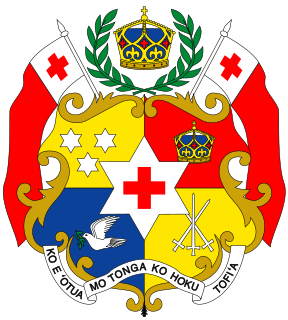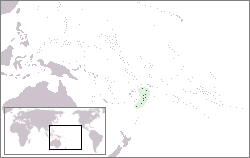
A corporal punishment or a physical punishment is a punishment which is intended to cause physical pain to a person. When it is inflicted on minors, especially in home and school settings, its methods may include spanking or paddling. When it is inflicted on adults, it may be inflicted on prisoners and slaves.

Flagellation, flogging or whipping is the act of beating the human body with special implements such as whips, rods, switches, the cat o' nine tails, the sjambok, the knout, etc. Typically, flogging is imposed on an unwilling subject as a punishment; however, it can also be submitted to willingly for sadomasochistic pleasure, or performed on oneself, in religious or sadomasochistic contexts.

Capital punishment in California is a legal penalty, but at present, it is not allowed to be carried out, because as of March 2019, executions are halted by an official moratorium ordered by Governor Gavin Newsom. Prior to the moratorium, executions were frozen by a federal court order since 2006, and the litigation resulting in the court order has been on hold since the promulgation of the moratorium. Thus, there will be a court-ordered moratorium on executions after the termination of Newsom's moratorium if capital punishment remains a legal penalty in California by then.

The Hudood Ordinances are laws in Pakistan that were enacted in 1979 as part of then military ruler Zia-ul-Haq's "Islamisation" process. It replaced parts of the British-era Pakistan Penal Code, adding new criminal offences of adultery and fornication, and new punishments of whipping, amputation, and stoning to death. After much controversy and criticism parts of the law were extensively revised in 2006 by the Women's Protection Bill.

Under the Constitution of Finland, everyone is entitled to have their case heard by a court or an authority appropriately and without undue delay. This is achieved through the judicial system of Finland.

The chief justice is Fiji's highest judicial officer. The office and its responsibilities are set out in Chapter 5 of the 2013 Constitution of Fiji. The Chief Justice is appointed by the President on the advice of the Prime Minister
In England and Wales, life imprisonment is a sentence that lasts until the death of the prisoner, although in most cases the prisoner will be eligible for early release after a minimum term set by the judge. In exceptional cases, however, a judge may impose a "whole life order", meaning that the offender is never considered for parole, although they may still be released on compassionate grounds at the discretion of the Home Secretary. Whole life orders are usually imposed for aggravated murder, and can only be imposed where the offender was at least 21 years old at the time of the offence being committed.

Capital punishment in Japan is a legal penalty. It is applied in practice only for aggravated murder, although certain crimes against the state, such as treason, are also punishable by death. Executions are carried out by hanging, and take place in one of the seven execution chambers located in major cities across the country.
Capital punishment is a legal penalty in Israel. Capital punishment has only been imposed twice in the history of the state and is only to be handed out for crimes committed during war time, such as genocide, crimes against humanity, war crimes, crimes against the Jewish people, treason, and certain crimes under military law.

The Privy Council of Tonga is the highest ranking council to advise the Monarch in the Kingdom of Tonga. It is empowered to advise the King in his capacity as Head of State and Fountain of Justice under the provisions of Clause 50 of the Constitution of Tonga:

Judicial corporal punishment (JCP) is the infliction of corporal punishment as a result of a sentence by a court of law. The punishments include caning, bastinado, birching, whipping, or strapping. The practice was once commonplace in many countries, but over time it has been abolished in most countries, although still remaining a form of legal punishment in some countries including a number of former British colonies and Muslim-majority states.
Capital punishment is legal in Tonga, but has not been imposed since 1982. The country's lack of executions puts it into the category of abolitionist in practice, where it retains the death penalty at law but has not imposed it in the last ten years. Tonga's low rate of murder convictions form part of the reason for the lack of executions, as well as its courts’ apparent unwillingness to impose the penalty unless it appears absolutely necessary to do so.

Anthony David Ford was a New Zealand lawyer and jurist. He served as a judge of the Employment Court of New Zealand and Chief Justice of the Kingdom of Tonga.

Lesbian, gay, bisexual, and transgender (LGBT) persons in Tonga face legal challenges not experienced by non-LGBT residents. Homosexuality is illegal in Tonga, with a maximum penalty of 10 years imprisonment, but the law is not enforced.
The Supreme Court of Tonga is the superior court in Tonga. It hears criminal and civil cases and acts as an appellate court for Tonga's inferior courts, the Magistrates' Courts.
Rape in Saudi Arabia is regulated by Islamic law, which is the basis for the legal system of Saudi Arabia. Under Islamic law, the punishment which a court can impose on the rapist may range from flogging to execution. However, there is no penal code in Saudi Arabia, and there is no written law which specifically criminalizes rape or prescribes its punishment. In addition, there is no prohibition of marital rape.
Sir Alan Fraser Wilkie, styled The Honourable Mr Justice Wilkie, is a former British judge and barrister. He retired on 31 January 2017.
The legal system of the United Arab Emirates is based on the civil law system with influences from Islamic, French, Roman and Egyptian laws.

Sione Vuna Fa'otusia was a Tongan politician, Cabinet Minister, and Member of the Legislative Assembly of Tonga who served as the deputy prime minister of Tonga from 2019 to 2020.
Laki Niu is a Tongan judge and former Member of the Legislative Assembly of Tonga. He is the first Tongan to sit on the Supreme Court of Tonga in over a hundred years.